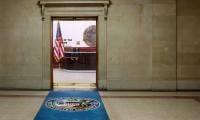SHC seeks suggestions to curb copy culture during examinations
The Sindh High Court (SHC) has issued a notice to the boards of examination and universities secretary and directed him to submit the complete prevailing mechanism with regard to the criteria of amount specified for invigilation and expenses occurred on examinations during the last two years in the province.
The direction came on an appeal of a government school headmistress with regard to fake invigilation bill regarding the annual examination 2011 for a government school in Gulshan-e-Iqbal.
The appellant, Irshad Begum, submitted that she had been transferred from the Government Girls Secondary School Gulshan-e-Iqbal to the Government Secondary School University Campus in 2011 and the respondent, Muniba Qureshi, who had been serving as the headmistress of the school had prepared a fake invigilation bill of an amount of Rs142,380 regarding the annual examination and got it passed from the board office without her knowledge and verification of relevant papers.
She submitted that she did not allow the payment of bill without any verification and production of a copy of bill for office record. She submitted that the respondent harassed and tried to pressurise her through the media and National Accountability Bureau authorities but when she explained the entire story to them, they stopped seeking explanation from her.
A single bench of the SHC comprising Justice Salahuddin Panhwar observed that such issue directly or indirectly raised serious question regarding the invigilation system of the annual examinations of the province. The high court observed that defective invigilation could surely result in allowing the substitution of undeserved with deserved and if so it shall be at the cost of our future which directly or indirectly would affect the fundamental rights of our students and every single candidate needed to have the assurance of a fair and transparent invigilation.
The SHC observed that the invigilation amount was paid through the public exchequer; therefore, there must be visible transparency in the invigilation. The high court also observed that the dispute with reference to invigilation had opened the door of its intervention so as to know the mechanism of invigilation from its initial stage till result.
The SHC raised queries as whether the examination duty could be considered as part of job description of teachers, whether the examination should not be at a place having no influence of the schools’ administration or teachers of students.
The high court further inquired as to whether allowing teachers/school staff to act as invigilators of nearby school was justified, whether government schoolteachers would be eligible to receive the invigilation amount and whether the boards of examination were sole regulators to conduct and supervise examinations to curb the copy culture nuisance.
The high court issued a notice to the board of examination and universities secretary who shall submit complete prevailing mechanism with regard to criteria of amount specified for invigilation and expenses occurred on examination in the last two years in the entire province after calling record from all the boards of public sector.
The SHC also issued notices to the chairmen of all education boards of Karachi, Hyderabad, Mirpurkhas, Sukkur, Larkana and Nawabshah as well as the secretaries of school and college education to submit complete details and mechanism about invigilation.
The high court also issued notices to the registrars of the Institute of Business Administration Karachi and Sukkur Institute of Business Administration as amicus curiae and asked them to submit justifications and recommendations with regard to curb the nuisance of copy culture in the Sindh on November 12.
Appeals dismissed
The SHC has dismissed appeals of two convicts against their convictions in a murder case. The appellants, Saddam Kakar and Azhar Hussain, were sentenced to life imprisonment by an anti-terrorism court for murdering a man in the Saddar area.
According to the prosecution, the convicts had killed a man, Abdul Rehman, on December 21, 2012, at Jinnah Postgraduate Medical Centre where he had been shifted in an injured state for medical treatment.
Police had arrested Kakar on the spot and recovered a weapon from his possession while Azhar was arrested later on. The appellants’ counsel submitted that the trial court had no jurisdiction to try the case as the parties in the case were on inimical terms and the incident had taken place due to personal vendetta.
It was argued from the appellants’ side that police personnel were interested witnesses and their testimonies could not be relied upon. The SHC was requested to acquit the appellants.
Meanwhile, a deputy prosecutor general submitted that the prosecution had proved its case against the appellants who killed the person at the emergency ward of a hospital with firearms. He submitted that Kakar was arrested red-handed.
He submitted that police personnel were present at the time of the incident and their testimonies could not be rejected merely on the grounds that they were police personnel.
A division bench of the SHC, headed by Justice Mohammad Karim Khan Agha, observed that all witnesses had supported the prosecution case along with supporting evidence. The high court dismissed the appeal and upheld their life imprisonment sentences awarded to them by the trial court.
-
 Emilia Clarke Reveals Real Price Of Playing Daenerys In 'Game Of Thrones'
Emilia Clarke Reveals Real Price Of Playing Daenerys In 'Game Of Thrones' -
 Ex-Chicago Mayor Hit With Lawsuit Over Unpaid Credit Card Bills
Ex-Chicago Mayor Hit With Lawsuit Over Unpaid Credit Card Bills -
 Andrew Risks His Relationships With Princess: ‘She’s Supporting The Abused And It’s Festering’
Andrew Risks His Relationships With Princess: ‘She’s Supporting The Abused And It’s Festering’ -
 Harry Styles Unveils New Album After Cryptic Posters Spark Fan Frenzy
Harry Styles Unveils New Album After Cryptic Posters Spark Fan Frenzy -
 Prince Harry Ready To Return To The UK To King Charles But It’ll Depend On How THIS Goes
Prince Harry Ready To Return To The UK To King Charles But It’ll Depend On How THIS Goes -
 Why Isn't King Charles Mourning Death Of His Father's First Cousin?
Why Isn't King Charles Mourning Death Of His Father's First Cousin? -
 Nicole Richie Breaks Silence On Her Daughter's Name Change
Nicole Richie Breaks Silence On Her Daughter's Name Change -
 Truth Behind Chris Noth, Sarah Jessica Parker's Ongoing Feud Revealed
Truth Behind Chris Noth, Sarah Jessica Parker's Ongoing Feud Revealed -
 Baseless Gender Identity Rumors Targeted At Bettijo Hirschi After Todd Bridges Split
Baseless Gender Identity Rumors Targeted At Bettijo Hirschi After Todd Bridges Split -
 'Harry Potter' TV Series Roped In Hans Zimmer For Score
'Harry Potter' TV Series Roped In Hans Zimmer For Score -
 Amy Robach, T.J. Holmes Make Daring Invite To Exes Marilee, Andrew
Amy Robach, T.J. Holmes Make Daring Invite To Exes Marilee, Andrew -
 Louis Tomlinson Gushes Over Harry Styles' Talent
Louis Tomlinson Gushes Over Harry Styles' Talent -
 Brian Austin Green Says THIS Relationship Left Him Feeling 'not Good Enough'
Brian Austin Green Says THIS Relationship Left Him Feeling 'not Good Enough' -
 Amy Robach, T.J. Holmes Shun Former Friends At 'GMA'?
Amy Robach, T.J. Holmes Shun Former Friends At 'GMA'? -
 Timothée Chalamet Shares Nervous Experience From 'Marty Supreme'
Timothée Chalamet Shares Nervous Experience From 'Marty Supreme' -
 'Andrew Leaving One Mansion To Go To Another Mansion'
'Andrew Leaving One Mansion To Go To Another Mansion'



